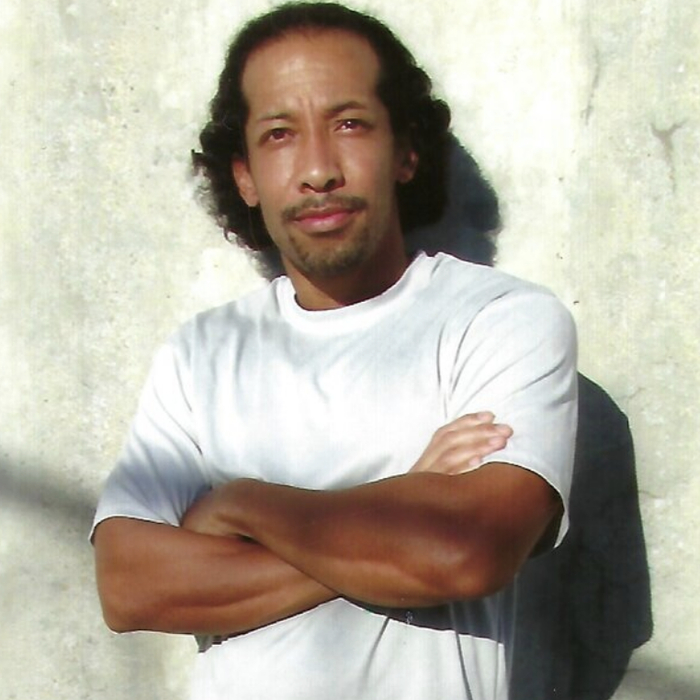I am the product of a loving marriage between my African-American father and Korean mother. (My father gave my sister and me African names: My sister’s is Sheba and mine is from an Ashanti king. But both of our middle names are Korean: Gueong. I added “El” – which means “creator” – to my surname during my journey of self-discovery. Edwards is a European slavemaster’s name.) They were not abusive or addicted to drugs and although my parents earned only a modest income, our basic needs were taken care of. In fact, I remember my early childhood as filled with love.
I say all this because unlike the stereotype, so-called “criminals” do not just come from broken homes, nor are they inherently deviant. Making mistakes is the human condition; it’s just that some are worse or result in more serious consequences than others.
Like all persons who find themselves incarcerated, I have spent endless hours reflecting on my life trying to understand how I got myself into such a predicament. It has taken a lot of soul searching to trace the path that led to where I am today. I believe there were two pivotal moments during my adolescence that led me to this place in life. And had I known what I know now, my life would be very different.
The mistake that spawned all the others
Both my parents were hard workers, particularly my mother. To better her financial and social position, my mother purchased a convenience store in D.C., but this came with consequences. Essentially, I lost my mother because she worked day and night, seven days a week.
By the time I was 14, my parents were going through a divorce, and I can recall a distinct moment when I made one of many mistakes to follow. One morning, I asked my mother for some money. Thinking back, it was clear she was struggling with the divorce, and that day she had an atypical response. She berated me, asking, “Do you think I’m made of money?!”
I quickly retreated to my room. I swore to myself I would never ask her for money again. But I “needed” that money. I wasn’t equipped to deal with peer pressure, and I needed money to catch the eye of girls, wear the latest fashions and otherwise fit in. The older me would scoff at such longings, but to a teenager, those desires are real—and powerful. Unsupervised because of my mother’s demanding work schedule, I became a student by day and drug dealer by night.
In 1991, I graduated high school with a 3.2 GPA, stopped selling drugs and went off to North Carolina A & T State University. But unbeknownst to me, I had already sold some crack to an undercover police officer. When I returned home for Thanksgiving break, I received a message from the same undercover agent, looking to set up a buy. The temptation to make some extra money before going back to college was too much. I gave in to the lure and was arrested. (It is interesting to note that the officer could have arrested me when he made the first controlled buy. For whatever reason, he chose to wait a few more weeks until I turned 18 and could be charged as an adult.)
Making mistakes is the human condition; it’s just that some are worse or result in more serious consequences than others.
Gezo edwards
My family had high hopes for me and I let them down, as well as myself. I remember my lawyer saying something that, unfortunately, stuck with me. After I accepted a plea deal, he explained that I would not have to do much jail time (four months), but added cavalierly, “But you will not be able to get a good job” [due to my record]. He could not have known the impact of his terse comment; I recall thinking, “Wow, my dream of becoming an engineer or computer scientist is over just like that!”
The mistake is compounded
When I was released from jail, I attended community college, then transferred to the University of Maryland in College Park. But the lawyer’s words remained in the back of my head. Meanwhile, my mother decided I should pay for my own tuition. Looking back, I know I had other options—student loans or a part-time job. But instead, I made my second big mistake and fell back on what I knew how to do: student by day, drug dealer by night. Eventually, I dropped out of school, since (as my lawyer had predicted) I figured I would not be able to get a good job anyway.
The streets were my norm until I had children—first a daughter and then a son. They made me want a different future, so I stopped the drug life. I learned how to rehab homes and got my real estate license in both D.C. and Maryland. I was happy to have a safe and normal life. That is, until trouble came knocking a third time—and I answered. I was in the midst of a divorce and on top of that, my father had died of cancer and the real estate market was on the edge of crashing, crippling my finances. Drugs were my solution. And when I was arrested that time, at age 37, I never saw the streets again.
I was wrong. But life?
The prosecutor offered me a deal: plead guilty and get 20 years. But the sentencing guidelines for the charge at play (conspiracy to sell cocaine) called for no more than 17 years. So, I exercised my right to go to trial. What I didn’t know at the time was the ability of the prosecutor and judge to include both acquitted and “relevant” conduct. For me, the former was a gun-possession charge for which I was found not guilty, and the latter were accusations made by the prosecutor that were never part of my formal charges and thus not considered by the jury (for example, an allegation that I was somehow communicating with one of the jurors).
Here’s what’s really wrong about that: When considering relevant conduct, the court is only required to decide if the “preponderance of the evidence” supports the defendant’s guilt—far from the “beyond-reasonable-doubt” standard a jury must use in reaching its verdict.
“This practice threatens to reduce the jury trial to a mere preliminary to a judicial inquisition into the facts of a crime the state actually seeks to punish,” wrote two Sidley Austin attorneys in The Criminal Law Reporter. And that’s why four Supreme Court justices have questioned the legality of sentence “enhancements” such as mine. [What an ironic term “enhancement” is—like it’s a good thing!] But unfortunately, the practice is allowed to stand.
By adding in my relevant conduct, I qualified for a mandatory life sentence.
Incarceration is a family tragedy
At the time of my arrest, I had been married (for the second time) to my high school sweetheart for five months. My life sentence was too much for her to bear. She told me she could not do the time with me, and I understood. I was heavy with guilt, because I had told her I wasn’t hustling anymore; I broke her heart. What’s doubly sad is that I was planning to stop that month.
A friend loves at all times, and a brother is born for a time of adversity.
Proverb 17:17
My son was only 6 when I was arrested; I didn’t tell him where I was for six months. He repeatedly asked, “Where is my daddy?” Finally, I mustered the courage to tell him during a video visit at the D.C. detention center. I could see the confusion on his face when he first picked up the phone receiver: “Why is my daddy on TV?” When I told him, he looked up at his mom and said, “Oh no! My daddy is in jail!” The pain and shock in his voice was more than I could bear.
My son was originally named after me. But while I was still fighting my case, his mother changed his first name. He and his mother came on a video visit so they could tell me. All I could say was, “Your daddy will always love you no matter what your name is.” I understood why his mother did what she did, but it hit hard. The social stigma associated with incarceration is tragic for everyone involved. Today, thankfully, my son and I are close.
Fortunately, I had had more years “in the world” to grow close to my daughter before I was incarcerated, and we are very close, although I have had to miss many special moments: her sweet-16 birthday, prom, high school graduation, college graduation and so much more. (She will be 24 this year!)
Meanwhile, almost everyone who had called me “friend,” some I’d known since grade school, abandoned me. Proverb 17:17 says, “A friend loves at all times, and a brother is born for a time of adversity.” I learned that some friends were never really true friends.
But through it all, I knew I was not alone. I am aware of how so many incarcerated persons find God/Allah during the deep isolation to which we are subjected in prison. For me, I knew I needed help to lift the heavy weight that sat on my chest. Real change in my life came when I learned how to forgive myself, allowing me to become a spiritual man with self-insight.
Hope requires effort. I read some advice one time: “… stay alive a minute longer and see what the next moment brings.” Spiritually, I know that the flesh is not me. I’m a sprit housed in this earth suit. There will be another time for me, on another plane of existence.
Another pivotal moment came when I read “The New Jim Crow” by Michelle Alexander. This book fueled a desire to learn the history of my ancestors. I decided then to take an autodidactic approach to my learning. I focused on history and on a knowledge of self. I have come to realize that history is essentially a story of the human family. We are all connected and this connection transcends time. What our ancestors did or did not do affects our lives today. It is how we got here.
I think that in the past, many Black families neglected to educate their kids on our history. I am guilty of that. I got only the most basic education on Black history from public school and could only give what I got. My catch-up was out of necessity. I needed to know and understand why and how I was serving a life sentence.
Since then, I’ve tried to educate my kids on U.S. history, with an emphasis on African Americans. But it wasn’t until all of the protests over the past year that their eyes really opened (Daddy isn’t crazy after all!).
But I also now see how the choices made by the younger me led to my present incarceration. The drugs I sold destroyed lives, mine included. I used every excuse one could say to himself to justify the street life. Now I can clearly see that selling drugs is an internecine activity between an individual and his community. I did the work for those who didn’t care if I or my community prospered.
I have grown and changed and have sought and found forgiveness. Society sees people like me as synonymous with our crimes. But as Bryan Stevenson of Just Mercy fame said, “We are more than just our mistakes.”
I hope and pray that my story stands as a warning to youth: Arm yourself with knowledge and wisdom so you can make sound decisions today. Good choices today will guide and protect you tomorrow.
Follow my Facebook page and sign the petition set up by my daughter to advocate for my freedom!




